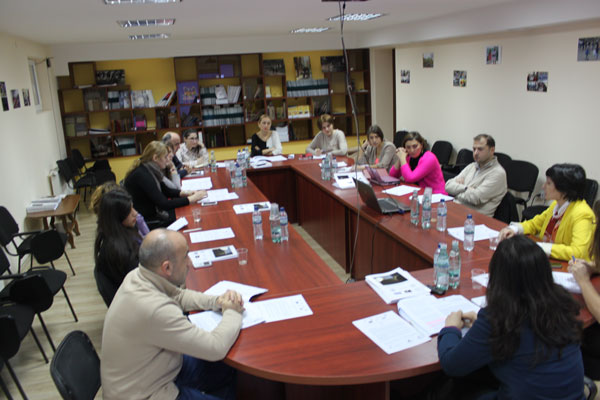Tamta Tvalavadze
Member and partner organizations of the Human Rights House Tbilisi and South Caucasus Network of Human Rights Defenders implemented project “Strengthening NGO participation in the execution process of the ECtHR judgments in South Caucasus”
The project aimed to enhance activities of the civil society organizations to monitor execution of judgments passed by the European Court of Human Rights. In accordance to the ECtHR principles, if the state loses a case, it is obliged to redress the damage and to prevent its repetition because “every internationally wrongful act of a state entails the international responsibility of the State.”
After the ECtHR passes the final judgment, the State is obliged to present an action plan to the Committee of Ministers. Based on this report, the Committee evaluates the implementation of the obligations by the State and if the process is dragged out, relevant measures will be taken.
In the frame of the Project, lawyers from the project partner organizations met Head of Department of Execution of Judgments at the Ministry of Committee and discussed communication standards and regulations for effective work.
Amendments introduced to the Convention in 2010 allowed civil society organizations to independently communicate with the ECtHR and notify about the irregularities in the execution process. Nongovernmental organizations, Public Defender’s Office and Bar Association have right to communicate with the European Court. Person, who will prepare an application via personal communication, shall be an attorney of the victim person. At the same time, the correspondence shall not be a political document.
European Court of Human Rights obliges the state to start individual and general measures for “the resitutio in integrum.
Lawyer of Human Rights Center Tamar Avalyani participating in the HRHT’s project clarified that individual measures, which aim to compensate applicants or redress the property, are mostly executed by the Georgian state. “As for general measures, such as amending the national legislation, the situation is worse. Georgia has not yet implemented its obligations taken in 2007. So, the project is significant for the improvement of the national legislation.”
In the frame of the project, Tamar Avalyani worked on the case 97 Members of Gldani Congregation vs Georgia, 2007. The victims have already received compensations; as for the legislative changes and punishment of perpetrators, it was not done yet.
Project partner organizations are: Human Rights House Foundation (Norway), Human Rights Center (HRIDC, Georgia), Azerbaijan Bar Association (Azerbaijan), Nongovernmental Organization “Rule of Law” (Armenia), Human Rights House Tbilisi (Georgia), Legal Education Society (Azerbaijan), Article 42 of the Constitution (Georgia), Democracy and HR Resource Centre Public Union (Azerbaijan), Helsinki Citizen Assembly Vanadzor (Armenia), Helsinki Foundation for Human Rights (Poland).
Purpose of the nongovernmental organizations is to implement activities on national and international levels and communicate on concrete cases. The organization shall try to launch large-scaled discussions on violations and interest other organizations and media. On the international level their main function is monitoring and advocacy of the judgment execution.
For the enhanced efficiency of execution, civil society organizations forward letters sent to the Committee of Ministers to all local potential stakeholders.
The worst situation in the violation of execution process is in Azerbaijan. Tamar Avalyani said situation is better in Georgia and Armenia. After the October, 2012 Parliamentary Elections, communication with the Georgian Government became more intensive and the execution process also improved.
News
December 13, 2023
Ethnic minorities outside the peace dialogue
November 6, 2023
‘Peace’ agenda of political parties
Popular
Articles
February 13, 2024




